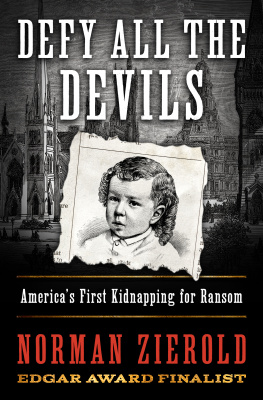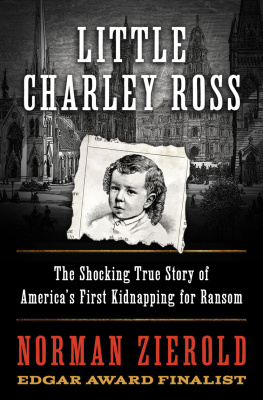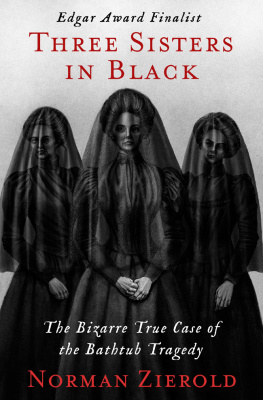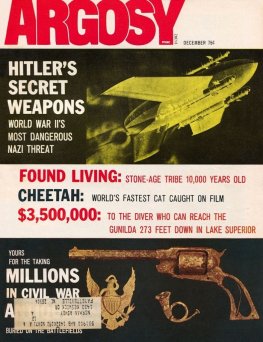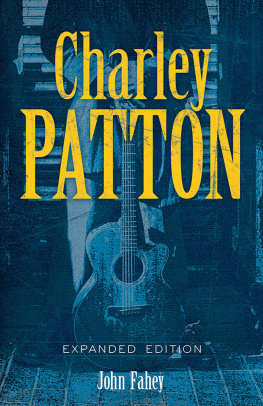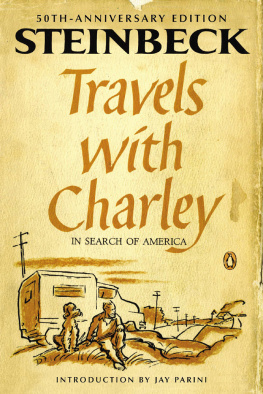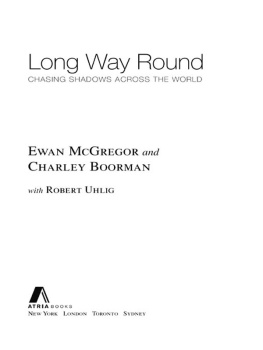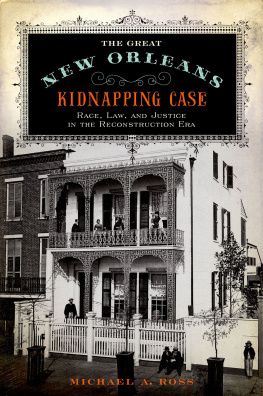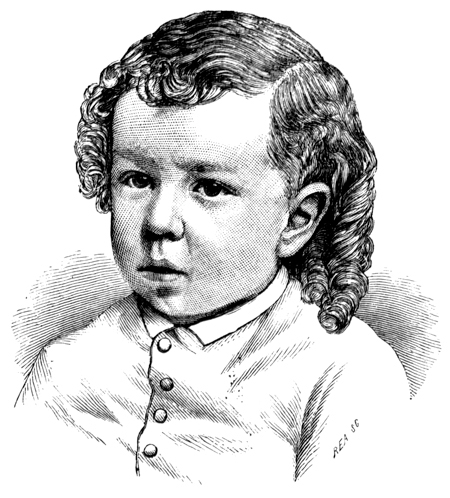
Charles Brewster Ross
1
The temperature in Philadelphia on July 1, 1874, hovered comfortably in the seventies. The sky was clear, bright, and sunny, giving the inhabitants one more reason to be joyful at the approaching weekend. The Fourth of July was the national holiday most closely identified with Philadelphias colorful early history, and this year it would be celebrated with redoubled spirits. The city already had been chosen as the site for the Centennial Exposition, scheduled to open in time to celebrate the one hundredth anniversary of the nations independence. The Centennial Board of Finance had just awarded contracts for the Memorial building and the main Exposition building, which would cover eighteen acres.
Overlying the general optimism were two ceremonies specifically planned for the Fourth, both symbols of municipal progress. At one end of the city, the new Girard Avenue Bridge, a thousand feet long and one hundred feet widethe widest bridge in the worldwas to be formally opened for travel across the Schuylkill River. The span was to be the principal avenue to the newly opened Zoological Gardens in Fairmount Park, sixteen acres of aviaries, monkey houses, bear pits, prairie dog villages, and deer parks. A display of fireworks which promised to be an unusually brilliant one was scheduled for Fairmount Park in the presence of the City Council.
At Penn Square the cornerstone was to be laid for the new City Hall, an enormous structure with an elaborate French Renaissance exterior and a sweeping tower capped by a statue of the citys founder, William Penn. Pennsylvanias Governor John Frederick Hartranft and President Ulysses S. Grant had been invited for the ceremonies, but by reason of engagements previously made had said they would be unable to appear. Philadelphia Mayor William S. Stokleys speech thus took on added importance, and as he prepared it his civic pride rose to remarkable heights.
I have seen and lived in most all of the capitals of Europe and I have read of all of the great cities of the world, he wrote, but I have never seen or read of such a city as this is. There is no town in the world of its dimension and population, and there never has been one that possesses such accommodations for its people. Artisans, even laborers, live with us as they have never lived before. Men whose daily earnings in other cities will hardly sustain life and provide a shelter for themselves and their families except in the most rude, coarse, scanty, and crowded way, are here the occupants of single and comfortable dwellings, and thousands of them the owners of their own houses.
The effect of this upon the mental and moral condition of the citizens is evident even to transient visitors. We have no such class here as the poor working man; our city is filled with workmen, independent, prosperous freemen, who bring up families of boys with habits of thrift and industry to go out in life prepared and resolved to earn homes because they have enjoyed them in their happy childhood.
To document his case, the mayor contrasted his city with New York. At the beginning of 1873 Philadelphia had 134,740 buildings, of which 124,302 were dwelling houses, some 60,000 more than New York. And this despite the fact that the population of Philadelphia was less than 800,000, while New Yorks was more than 1,000,000.
Philadelphias citizens lived in a comfortably sprawling area of 12 square miles crisscrossed by more than 900 miles of streets and roads, more than 500 of them paved. The city boasted 10,000 gas lamps; more than 1600 schoolteachers and more than 80,000 pupils; more than 34,000 bathrooms, most of them supplied with hot water; and more than 400 places of public worship. The Quaker Citys well-stocked houses of prostitution were understandably omitted from the tabulation.
Of all the cities in this nation, Philadelphia is pre-eminently American, the mayor continued after inditing these figures. Its characteristics and customs, the habits and peculiarities of the people are essentially American. If a foreigner were to ask me where will I find a real man untouched in his character and nationality by the ever-drifting tide of emigration, domestic and foreign, and with no taint of provincial narrowness, I would say go to Philadelphia, and there you will find just such men and women by the hundreds of thousands.
Having prepared this eulogy to the city, Mayor Stokley made his plans to get out of it. Shortly after the Fourth he would leave for Long Branch, a fashionable watering place on the coast north of Atlantic City. The mayor would spend the entire month there and return to the city only for brief visits to attend to urgent business.
At that safe distance he would probably read in the papers an account of the Total Abstinence Beneficial Societies, who planned to turn out in full force on the Fourth, singing and praying in front of saloons; and of the meeting at Independence Square of Temperance Blessing, a group which had scheduled, in addition to a reading of the Declaration of Independence, the recitation by two young children of poems entitled The Inebriates Ladder and The Drunkards Tomb.
He was also likely to note an advertisement which the advocates of prohibition frequently inserted in the Public Ledger, a newspaper run by the mayors friend William V. McKean. It drew attention to Buttermilk, the great summer drink, and provided an address where that refreshing beverage could be obtained.
The mayor had been mildly surprised recently when the Ledger took issue with a different type of prohibition, that against bathing in the citys rivers. Only a few days earlier, when city police arrested twenty-one persons in the Schuylkill, the paper had come to their defense, stating that bathing and swimming were good exercise and that there ought to be as little hindrance to them as possible, especially as the authorities had failed to provide the means for those who had no facilities at home. The Ledger editorial contended that a dip in the river could not be technically prohibited if there were no exposure of the person, and advised that a first-rate bathing dress could be made by taking an old pair of pantaloons and cutting the legs off a little above the knees.
In the same issue, the Ledger printed a notice from Police Chief Kennard H. Jones in which he declared that the ordinance prohibiting the firing of crackers, rockets, and other fireworks would be rigidly enforced during the holiday weekend. Parents and guardians were earnestly requested to see that those under their control obeyed the ordinance.
These were minor dampers on the buoyant mood which prevailed. Despite the police chiefs notice, crackers and rockets were on sale throughout the day. At Fairmount Park, moreover, the schedule provided for a Grand Oriental Illumination and a Grand Balloon Ascension, as well as a Grand Fourth of July Picnic.

